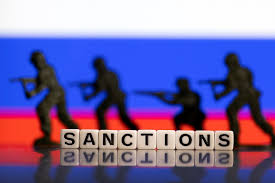President Biden Announces Broad Coordinated Set of Sanctions and Export Controls Against Russia

The Biden Administration announced a robust set of trade sanctions and export controls against Russia in response to the Russian invasion of Ukraine. The Treasury Department’s Office of Foreign Asset Control (“OFAC”) and the Department of Commerce’s Bureau of Industry and Security (“BIS”) issued broad sanctions and export controls respectively, designed to impose severe economic costs on Russia. The United States, along with its Allies, are targeting Russia’s access to the global financial and trade system and cutting-edge technology.
OFAC added 75 entities and 15 individuals from Russia and Belarus to the Specially Designated List.
The financial sanctions will impose significant costs on Russia’s ten largest financial institutions by blocking correspondent and payable-through transactions and restricting debt and equity transactions. Russia’s ten largest financial institutions hold approximately 80 of Russian banking assets. The export control measures will cut off Russia’s ability to import high-tech products needed for manufacturing and access to critical technology inputs.
In a coordinated action, United States Allies have implemented will implement similar sanctions and export controls. Australia, Canada, the European Union, Japan and the United Kingdom adopted similar sanctions and export controls against Russia.

In response to the sanctions and export controls measures, Russia’s stock market fell significantly and its currency, the ruble, fell to its lowest level.
Financial Sanctions
OFAC targeted Sberbank and VTB Bank and their subsidiaries for specific sanctions. OFAC imposed correspondent banking and payable-through sanctions against Sberbank and its 25 subsidiaries. Sberbank is the largest bank in Russia. Sberbank will be blocked from engaging in United States dollar transactions.
With respect to VTB Bank, Russia’s second largest bank, OFAC imposed full blocking sanctions against VTB and 20 subsidiaries. In addition, OFAC issued full blocking sanctions against three other significant Russian financial institutions: Bank Otkritie, Sovcombank OJSC, and Novikombank- and 34 subsidiaries.
OFAC’s Directive 2 sets forth the specific restrictions against Sberbank and VTB Bank. Under Directive 2, U.S. financial institutions are prohibited from (1) “opening or maintaining” a correspondent account or payable-through account for or on behalf of foreign financial institutions subject to the prohibitions of Directive 2; and (2) the processing of a transaction involving foreign financial institutions subject to Directive 2. Sberbank and its subsidiaries are designated entities subject to Directive2.

OFAC also issued new debt and equity restrictions on thirteen Russian entities, which restricted new debt transactions greater than 14 days maturity, and new equity issued by thirteen Russian state-owned enterprises: Sberbank, AlfaBank, Credit Bank of Moscow, Gazprombank, Russian Agricultural Bank, Gazprom, Gazprom Neft, Transneft, Rostelecom, RusHydro, Alrosa, Sovcomflot, and Russian Railways.
OFAC’s Directive 3 sets forth the specific debt and equity restrictions. Under Directive 3, U.S persons are prohibited from engaging in transactions: (1) with the above-listed entities, new debt of longer than 14 days maturity and new equity issued after March 26, 2022; and, with entities subsequently made subject to Directive 3, new debt of longer than 14 days maturity and new equity issued 30 days from the date of designation of the organization or individual as subject to Directive 3.
Oligarch Sanctions
OFAC announced sanctions against a number of Russian elites and their family members: Sergei Ivanov (and his son, Sergei), Nikolai Patrushev (and his son Andrey), Igor Sechin (and his son Ivan), Andrey Puchkov, Yuriy Solviev (and two real estate companies he owns), Galina Ulyutina, and Alexander Vedyakhin.
Belarus Sanctions
In response to Belarus’ support for Russia’s invasion of Ukraine, OFAC sanctioned 24 Belarusian individuals and entities, including Belarus’ military and financial capabilities. The new sanctions include two significant Belarusian state-owned banks, nine defense firms, and seven regime-connected officials and elites.
OFAC General Licenses
OFAC issued a number of general licenses relating to the new Russian Sanctions Program:
General License 5: authorized activities by certain international organizations and entities;
General License 6: transactions related to export or re-expport of agricultural commodities, medicine, medical devices, replacement parts and components or software updates or the COVID-19 pandemic.
General License 7: authorized overflight payments, emergency landings and air ambulance services;

General License 8: exemption for from financial transaction prohibitions “related to energy.” The term “related to energy” means the extraction, production, refinement, liquefaction, gasification, regasification, conversion, enrichment, fabrication, transport, or purchase of petroleum, including crude oil, lease condensates, unfinished oils, natural gas liquids, petroleum products, natural gas, or other products capable of producing energy, such as coal, wood, or agricultural products used to manufacture biofuels, or uranium in any form, as well as the development, production, generation, transmission, or exchange of power, through any means, including nuclear, thermal, and renewable energy sources;
General License 9: authorizes transactions related to divestment of debt and equity involving the prohibited entities under the financial sanctions up until May 25, 2022;
General License 10: authorizes transactions related to unwinding derivative contracts involving the prohibited entities under the financial sanctions up until May 25, 2022;
General License 11: authorizes wind down transactions up until May 26, 2022, involving: (1) Bank Otkritie; (2) Sovcombank OJSC; and (3) VTB Bank.
General License 12: authorizes U.S. persons to reject all transactions involving (1) Bank Otkritie; (2) Sovcombank OJSC; and (3) VTB Bank that are not authorized prior to March 26, 2022;
OFAC issued two General Licenses under the Belarus Sanctions Program:
General License 6: authorizes official United States government business; and
General License 7: authorizes official business of certain international organizations and entities.
BIS Export Controls

BIS also adopted Russia-focused restriction to bar Russian’s import of technological goods critical to its economy, including sensitive technology, that can be used by the Russian defense sector. These restrictions apply to sensitive U.S. technologies produced in the United States and products produced in foreign countries that use U.S.-origin software, technology or equipment, including semiconductors, telecommunication, encryption security, lasers, sensors, navigation, avionics and maritime technologies.
To implement these policies, BIS set license requirements with a policy of denial on all Export Control Classifications 3 to 9 of the Commerce Control List, 58 of which were not previously controlled to Russia. BIS also added 49 Russian military end users to the Entity List.
In another unprecedented actions, BIS created two new foreign direct product rules for all of Russia, including a more restrictive use of license exceptions. The new rules set cut-off dates of March 24, 2022, and February 24, 2022, respectively.
To leverage Ally support, BIS will exempt other countries that adopt equally stringent measures from new U.S. licensing requirements for items produced in their countries. The European Union, Australia, Japan, Canada, New Zealand and the United Kingdom intend to implement similar sanctions and export controls.
















1 Response
[…] Source link […]